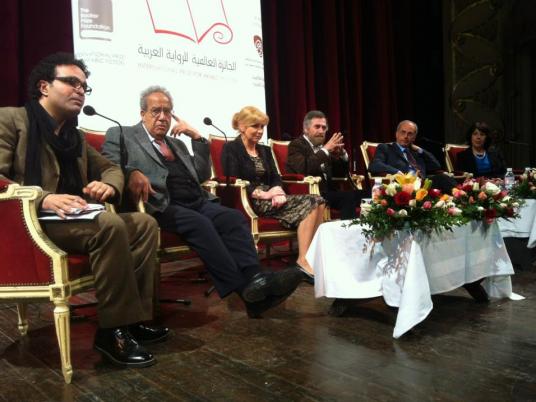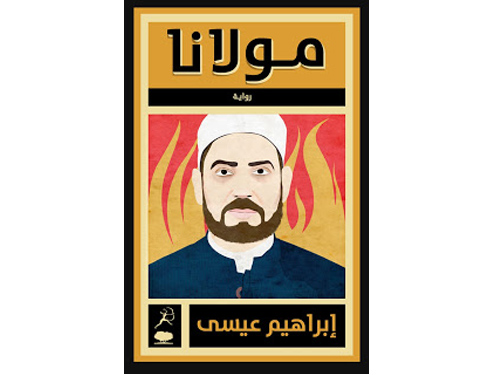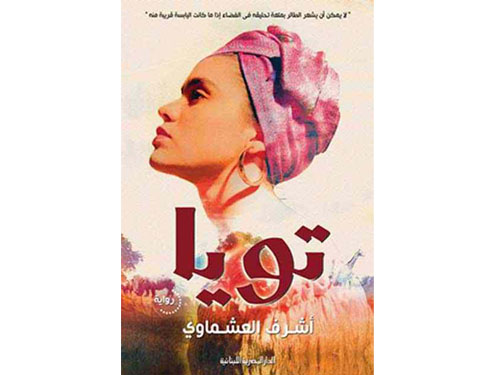When the shortlist for the 2012 International Prize for Arabic Fiction (IPAF) is announced this December, it’s likely the six names will be revealed in Cairo.
Fleur Montanaro, administrator of the prize popularly known as the “Arabic Booker,” is in town this month, scoping out possible locations to host the announcement ceremony.
“It does depend a bit on events,” Montanaro says. “But I’m hoping to hold it in Cairo.”
If all goes well, the shortlist will be hammered out on 6 December. The following day, the prize’s five judges will announce the six candidates at a press conference; later in the day, the Egyptian public will be invited to an event where they can meet and question the judges.
In past years, the judges' identities have leaked before the event. But Montanaro, who took over administration of the prize last September, says that keeping these secrets locked down is one of her particular goals.
The IPAF, now heading into its fifth year, saw fewer submissions in this turbulent year. One hundred and eight qualifying novels have been received, whereas in 2010 organizers received 123.
“For example, in Syria … publishing has stopped, essentially,” Montanaro says. “Actually, that number [108] is quite high, considering what’s been going on.”
But, despite political shifts, the IPAF continues to attract both unprecedented criticism and attention in the world of Arabic literary prizes. Criticisms have run from the possible influence of Emirati money (the prize is funded by the Emirates Foundation) to the award’s ostensible focus on Western-friendly books.
Egyptian authors have been some of the most vocal about the award. In an interview with Al-Masry Al-Youm, Montanaro responded to a few of the key criticisms.
Al-Masry Al-Youm: Publishers only get to submit three books each. Why not more?
Fleur Montanaro: I think that is just a very practical problem, given the time we have between the actual closing date and the longlist decision. At the moment, judges are already almost reading one novel a day.
The problem is that a lot of people submit very late. I have most of my submissions, maybe 80 percent of them, in the last two weeks. Had they submitted at the beginning of April, when they could have done, judges would’ve had more time to read, and therefore we could’ve had a bigger number.
You can imagine if we opened it up and said, “You can submit as many as you like.” We would have a massive number.
Al-Masry: With the Man Booker, if you were previously shortlisted, your novel could be submitted without counting against the limit.
Montanaro: That’s true [of the IPAF]. I was not aware of that, and a lot of publishers were not aware of that either. It would’ve affected one of the publishers this year. Yes, if you have been previously shortlisted, you can be automatically submitted, and it doesn’t count against your … number. You can still submit three titles.
Al-Masry: Funding and oversight from the Emirates Foundation in Abu Dhabi makes some in the book world uncomfortable.
Montanaro: Genuinely, the role of our funder is that they give us money, and help us get visas sometimes for the authors who are doing events in the Emirates or for the ceremony. They don’t interfere in the daily running of the prize. I personally don’t have much contact with the Emirates Foundation at all. The emails I write them are restricted to workshops we’re doing and practical arrangements.
They don’t influence the running of the prize, which is great. They don’t seek to influence or interfere. No one from the Emirates Foundation is a trustee.
Al-Masry: Egyptian novelist Gamal al-Ghitani has complained that the IPAF has “no philosophy.”
Montanaro: Judges look for the best novel for the year, without regard to the identity of the author, whether he’s an established writer, young or old, regardless of his previous books. Just that the novel he or she has written is the best novel for that year. And how they decide what “best” novel is, is obviously down to the judges each year. And it’s in a way a subjective decision because a different panel will choose a different book.
Al-Masry: Al-Ghitani also complained about translation being part of the award. I think this dovetails into the criticism that the award is more westward-looking, that it lays too much emphasis on books that appeal to foreign readers.
Montanaro: The judges aren’t choosing it on the basis of whether it’s going to be good in translation in any language. They genuinely choose them on the basis of quality without regard to that. As an example, one of the winners this year, Raja Alem, is quite refined and may not be very easy to translate. They didn’t consider that; that wasn’t a consideration at all.
Al-Masry: Lebanese author Hanan al-Shaykh said that the IPAF has not yet turned up the best of Arabic literature. Are you still looking to widen the net?
Montanaro: Well, it’s up to the people who criticize it … to submit their books. I don’t know how we can widen the net, without increasing the number of submissions, which is difficult.
Al-Masry: One thing that bothers me is the requirement that the authors sign off on. What’s the thought behind requiring them to sign off versus saying we just want the best books, we don’t care if you’re going to turn down the award or not?
Montanaro: To be honest, I’m not sure. But I think it’s because we would like the nominated novelists to actually be able to talk about their novels, to have interaction with the public, the press. [If they didn’t], that would be a big shame. So I think that’s one reason.
Al-Masry: Some say that the IPAF has quotas – two Egyptians have already won – so now it needs to go to writers from elsewhere.
Montanaro: Absolutely not. I can just say no, really. I know that the judges last year didn’t give any consideration to age, nationality, gender or anything personal about the writer.



